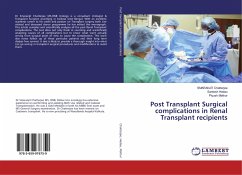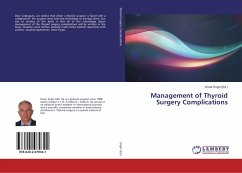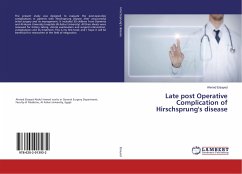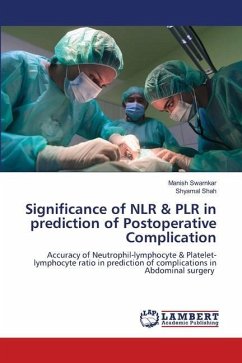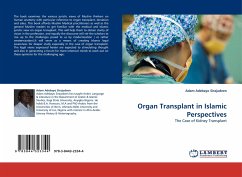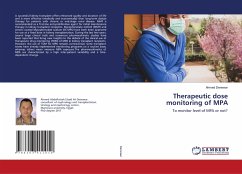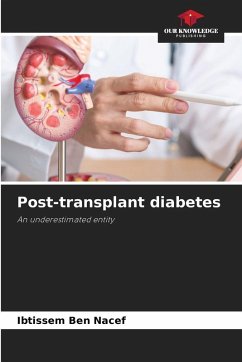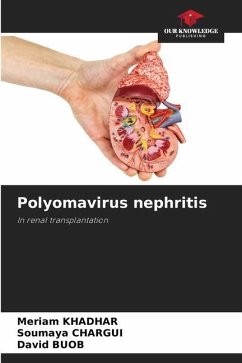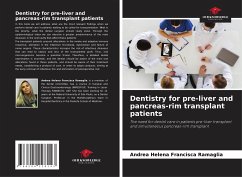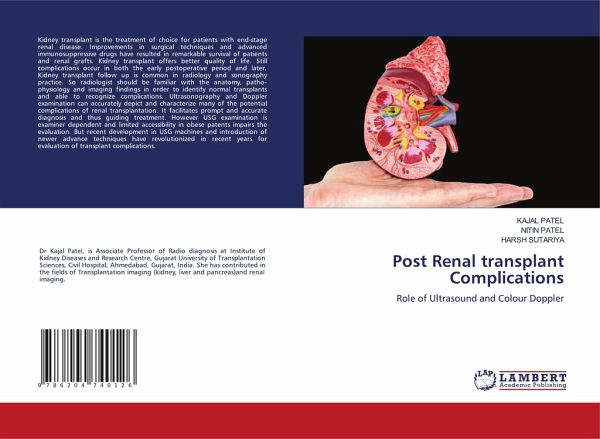
Post Renal transplant Complications
Role of Ultrasound and Colour Doppler
Versandkostenfrei!
Versandfertig in 6-10 Tagen
29,99 €
inkl. MwSt.

PAYBACK Punkte
15 °P sammeln!
Kidney transplant is the treatment of choice for patients with end-stage renal disease. Improvements in surgical techniques and advanced immunosuppressive drugs have resulted in remarkable survival of patients and renal grafts. Kidney transplant offers better quality of life. Still complications occur in both the early postoperative period and later. Kidney transplant follow up is common in radiology and sonography practice. So radiologist should be familiar with the anatomy, patho-physiology and imaging findings in order to identify normal transplants and able to recognize complications. Ultr...
Kidney transplant is the treatment of choice for patients with end-stage renal disease. Improvements in surgical techniques and advanced immunosuppressive drugs have resulted in remarkable survival of patients and renal grafts. Kidney transplant offers better quality of life. Still complications occur in both the early postoperative period and later. Kidney transplant follow up is common in radiology and sonography practice. So radiologist should be familiar with the anatomy, patho-physiology and imaging findings in order to identify normal transplants and able to recognize complications. Ultrasonography and Doppler examination can accurately depict and characterize many of the potential complications of renal transplantation. It facilitates prompt and accurate diagnosis and thus guiding treatment. However USG examination is examiner dependent and limited accessibility in obese patents impairs the evaluation. But recent development in USG machines and introduction of newer advance techniques have revolutionized in recent years for evaluation of transplant complications.



